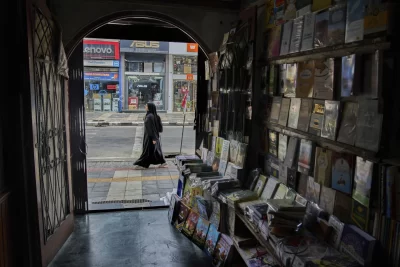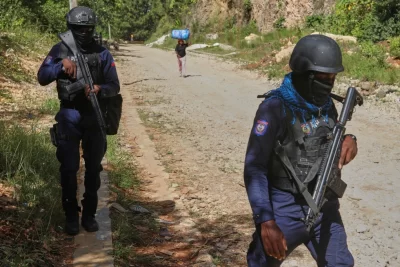
LYMAN, Ukraine— When the Russian army mounted a full-scale invasion two years ago, Ukrainian men zealously rushed to recruitment centers across the country to enlist, ready to die in defense of their nation.
Today, with Russia in control of roughly one-quarter of Ukraine and the two armies virtually deadlocked along a 1,000-kilometer (620-mile) front line, that spirit to enlist has faded: Many Ukrainian men are evading the draft by hiding at home or trying to bribe their way out of the battle.
Along the frigid and muddy front line, commanders say their army is too small and made up of too many exhausted and wounded soldiers. As the war enters its third year, the most urgent and politically sensitive challenge pressing on Ukraine is whether it can muster enough new soldiers to repel an enemy with far more fighters at its disposal.
Russia’s population is more than three times as large as Ukraine’s, and President Vladimir Putin has shown a willingness to force men to the front if not enough volunteer.
RUSSIA-UKRAINE WAR
The lack of soldiers isn’t Ukraine’s only predicament – it is also desperate for Western military aid, which has been harder to come by as the war drags on. But mobilizing enough soldiers is a problem only Ukraine can solve.
To replenish its ranks, the Ukrainian government is struggling to find a balance between coercion and persuasion.
The parliament is considering legislation that would increase the potential pool of recruits by about 400,000, in part by lowering the enlistment age from 27 to 25. But the proposal is highly unpopular, forcing elected officials to grapple with questions that cut to the heart of nationhood: Can they convince enough citizens to sacrifice their lives? And, if not, are they willing to accept the alternative?
A Ukrainian soldier fighting near the city of Avdiivka — where soldiers retreated last week to save lives — said his unit was recently outnumbered by about 5 to 1 when dozens of Russian soldiers stormed their position, killing everyone but himself and two others.
“We were almost completely defeated,” said Dima, who refused to provide his last name for security reasons.
Roughly 800 kilometers (500 miles) away, a 42-year-old man hides at home outside of Kyiv, distressed. “I feel a sort of a guilt for being a man … I cannot feel myself free,” said Andrii, who insisted on using his first name only to speak about dodging the draft.
Tens of thousands of other eligible Ukrainian men are estimated to be evading the draft, at home or abroad.
WHO WILL DIG THE TRENCHES?
Because there aren’t enough new recruits, soldiers on the front line aren’t getting enough rest in between rotations. Two years of grueling battles have left men fatigued and more susceptible to injury. When there are new recruits, they are too few, too poorly trained and often too old, according to interviews with two dozen Ukrainian soldiers, including six commanders.
Commanders say they don’t have enough soldiers to launch offensives, and barely enough to hold positions amid intensifying Russian assaults.
Brigades of 3,000-5,000 soldiers are typically fighting with only 75% of their full strength, according to Vadym Ivchenko, a lawmaker who is part of the parliament’s national security, defense and intelligence committee. Some brigades have as few as 25%, he added.
Dima, the soldier fighting near Avdiivka, was among a dozen men treated recently at a field hospital near the front. Doctors there said their work was like a merry-go-round: Soldiers sent back to fight after being treated often reappear weeks later with fresh wounds.
Igor Ivantsev, 31, has been wounded twice in the span of four months. His body aches when he carries his machine gun, but doctors deem him fit to serve. Ivantsev said that of the 17 men he enlisted with, most are dead; the rest are like him, wounded.
Ivantsev’s commander, who would only provide his first name, Dmytro, said his exhausted and depleted company is working overtime to dig deeper trenches and build better locations from which to counter constant Russian artillery. “We have no people, nowhere to get them from,” Dmytro said. At the start of the war, soldiers were rotated every two weeks for one week of rest, he said. But now his soldiers fight for a month, then get four days of rest.
The average Ukrainian servicemen is in their 40s, according to Western officials. Commanders say the older the soldiers, the more they experience chronic illness, such as ulcers, hernias and pinched nerves. Dima’s assault company recently received seven new recruits ages 55 to 58.
“What positions are they going to storm?” he asked sarcastically. “If he walks 4 kilometers with a backpack full of gear and weapons, he will fall down in the middle of the road.”




